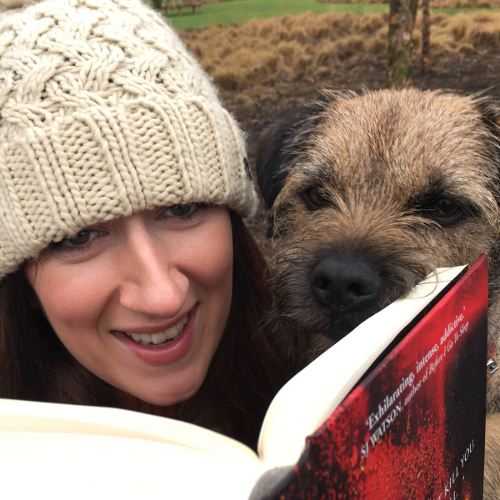Boost Students’ Literacy Levels – Even in Challenging Secondary Schools

Literacy is the key, and now a city-wide network in Stoke-on-Trent has found a way to help every student unlock GCSE success

In a world where GCSE content and exams are becoming more challenging, secondary schools can be high-pressure environments for staff and students alike – particularly in areas where the number of students achieving the all-important five A*-Cs (or equivalent) is low, like where I work in Stoke-on-Trent.
In 2016, only 56% of students in Stoke-on-Trent achieved A*-C grades (or equivalent) in GCSE English and maths, compared to 63% of students nationally.
Not only is this a problem for schools and teachers in the city, but these results also indicate that young people in Stoke will find it harder to live a successful life than their peers, with National Literacy Trust research showing that teenagers who leave school without good literacy skills are more likely to be unemployed, have poorer health and be involved in crime.
Ask any teacher why a particular student didn’t perform well in a particular exam and you’ll often get the same answer: “They didn’t read the question properly” or, “They knew the content, but their answer wasn’t written clearly so they couldn’t demonstrate their knowledge.” It is often poor literacy, rather than a lack of understanding, that is holding our students back.
If we can boost our students’ literacy skills, they will be better able to understand GCSE subject content and exam questions, and an improvement in their grades will follow.
But, as teachers, we know this is easier said than done, with strains on our time meaning literacy is often seen as “that CPD that we have once a year” or just an add-on. So what can be done?
Working together
In 2017, the National Literacy Trust and Stoke-on-Trent City Council launched the Stoke Reads campaign to address the specific literacy challenges facing children and families in the city, including low GCSE results.
The campaign brings together key local business, health, education and cultural partners to promote reading and make a long-term change to literacy levels in the city.
As the secondary literacy lead for the campaign, my mission is to help every teacher in the city, regardless of what subject they teach, understand that literacy isn’t just a teaching and learning tool – it is teaching and learning.
Here’s what I’ve been doing for the past year:
Every secondary school in Stoke now has National Literacy Trust membership, which enables them to access hundreds of inspiring teaching resources, school improvement tools, free online training courses, generous discounts on CPD and from our partners, and more – all to improve literacy provision in their school.
“Having access to the National Literacy Trust [membership] is very useful, with all the resources and especially the literacy audit.”
– Jenny Belt, literacy coordinator at the Discovery Academy
Every secondary literacy lead in Stoke now receives one-to-one support. I help literacy leads develop actions plans and literacy projects that target the specific literacy challenges in their school. These programmes are often adopted by other schools with similar literacy challenges.
At Haywood Academy, I have worked with the literacy lead to develop an oracy strategy which we will trial in a few classes, then roll-out to the whole school if it is successful. The strategy will change the way tutorials are delivered; silent reading time will be transformed into a time for reading followed by discussion and debate.
Every secondary literacy lead is now a member of a city-wide network that meets every half-term.
We have created a network of all secondary literacy leads in Stoke and, every half term, I host a meeting of the network to share new resources, offer and deliver CPD, provide updates on the Stoke Reads campaign and give everyone an opportunity to share what’s been working well – and not so well – in their school.
“We share best practice and updates about what the Hub is doing. On the whole, the meetings are useful. They’re for sharing info that I wouldn’t otherwise know.”
– Charlotte Halliday, former literacy lead at Thistley Hough
Is it working?
“Within schools everyone gets caught up in the day to day, in the teaching, the marking, the planning,” says Jenny Belt, literacy coordinator at the Discovery Academy.
“We’re sort of siloed. So we forget to take time out to think strategically, to see the bigger picture. The Hub, it helps us to refocus and it gives us initiatives to do throughout the school, it pushes us to network between schools in Stoke, it gives us ideas and motivation to try things out. I think it’s very much the driving force for our work.”
Over the past year, secondary teachers involved in the Stoke Reads campaign reported that they were:
- More knowledgeable about evidence-based approaches to teaching literacy (a rise of 30% since 2016);
- More confident using formative assessment (70% vs. 62%); and
- Better able to support the literacy of reluctant readers (76% vs 67%), FSM pupils (73% vs 61%), more able pupils (83% vs 75%) and EAL pupils (63% vs 55%)
This has led to a boost in their student’s attitudes towards literacy. One quarter (25%) of secondary students who said they didn’t enjoy reading in 2016 said they now enjoyed reading when they were surveyed a year later, and half (53%) of students who said they weren’t very good readers in 2016 said their reading skills had improved by 2017.
We are already starting to see an emerging community between teachers in Stoke-on-Trent which is empowering them to try out new strategies, initiatives and projects which are having a positive impact on their students’ literacy. Over the coming years, we hope these efforts will translate to improved GCSE results – and life chances – for young people in Stoke.
What can you do in your school?
In your classroom:
- Make sure you think about literacy as a whole – reading, writing, speaking and listening – and make time for each element in your lessons
- “Writing floats on a sea of talk”; encourage your students to speak in full sentences and their writing will also improve
- Have some writing prompts ready for your students to use, such as writing frames, punctuation pyramids and connective mats
- When students check their spelling and grammar, ask them to look over their work backwards, starting at the very end and working back to the start. When we read our work from left to right, we miss spelling mistakes because our memories tell us what is on the page. Scanning right to left means we are more likely to spot spelling mistakes!
- Get students to read their work out loud to check it makes sense – I often set aside two minutes where every student reads their work out loud; as everyone is doing the same, it isn’t so embarrassing and students are more likely to spot grammatical errors when reading out loud
Throughout your whole school:
- Get like-minded people on board to act as literacy champions. Seek out teachers from different departments who you know feel passionately about literacy, and set up a working group to share good practice
- Invite staff to join your working group and spread your key messages about the importance of literacy
- Ask for a regular ‘sharing good practice’ slot in your staff briefing that is always literacy-focussed. Ask people from a range of departments to share a top tip, idea or resource with the rest of the staff
- Create a shared folder on your school network that people can add literacy-based resources to and ask for the folder to be a permanent fixture on everyone’s desktops. That way, literacy inspiration is always at hand!
With other schools in your local area:
- Email head teachers in your local area to find out who is responsible for whole-school literacy in their school, explaining that you want to set-up a collaborative network to share good practice
- Contact the literacy leads and aim to set-up at least three meetings a year, hosted at one of the schools. Invite everyone to bring something to share
- Consider setting up an online community for all literacy leads to access (such as a Dropbox account, Facebook group or Outlook group) to make sure everyone is sharing new resources or ideas regularly
 Sarah Hancock is the secondary literacy lead for the National Literacy Trust Hub in Stoke-on-Trent, known as the Stoke Reads campaign. Sarah is currently an English teacher at Haywood Academy and has seven years’ experience teaching English.
Sarah Hancock is the secondary literacy lead for the National Literacy Trust Hub in Stoke-on-Trent, known as the Stoke Reads campaign. Sarah is currently an English teacher at Haywood Academy and has seven years’ experience teaching English.












